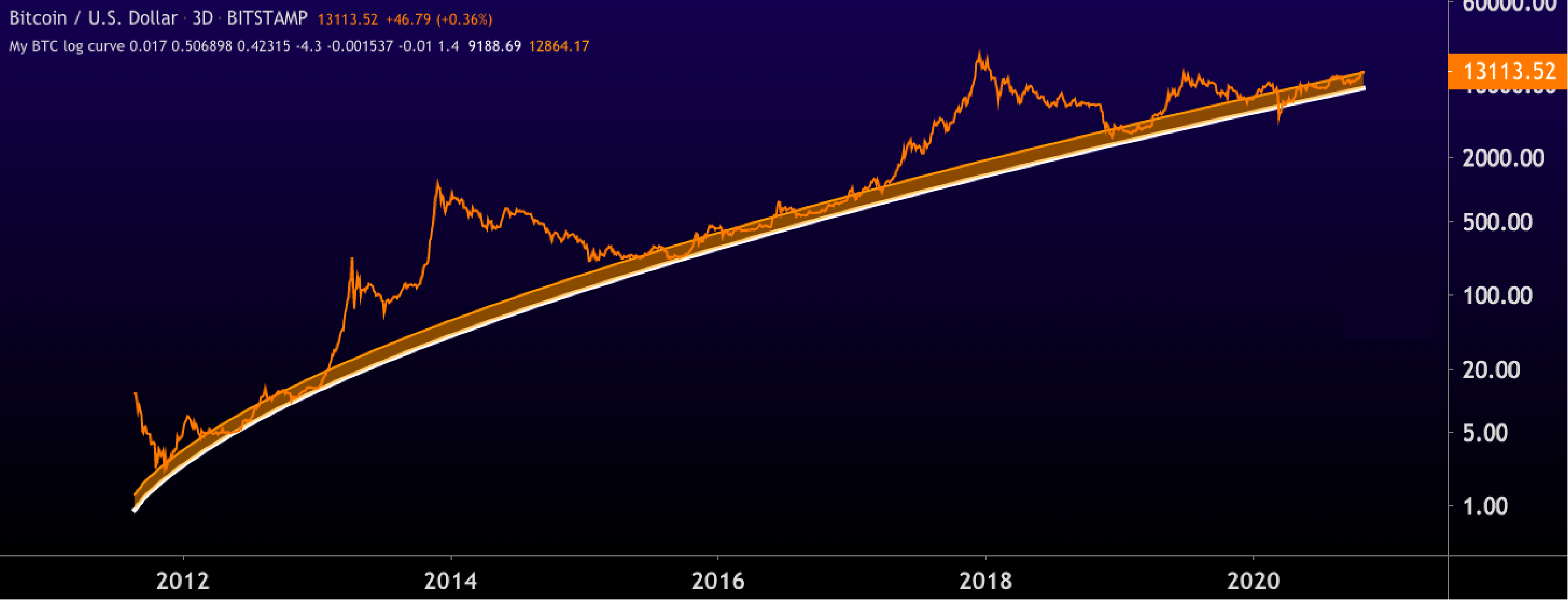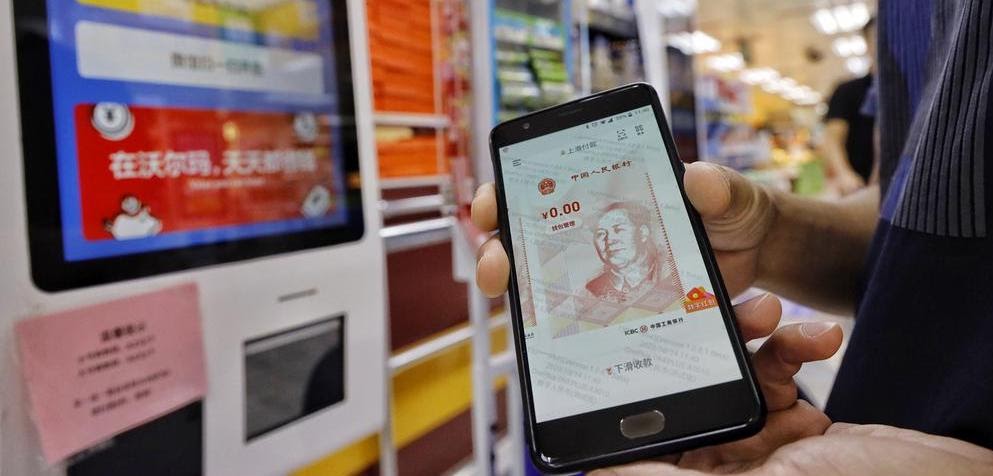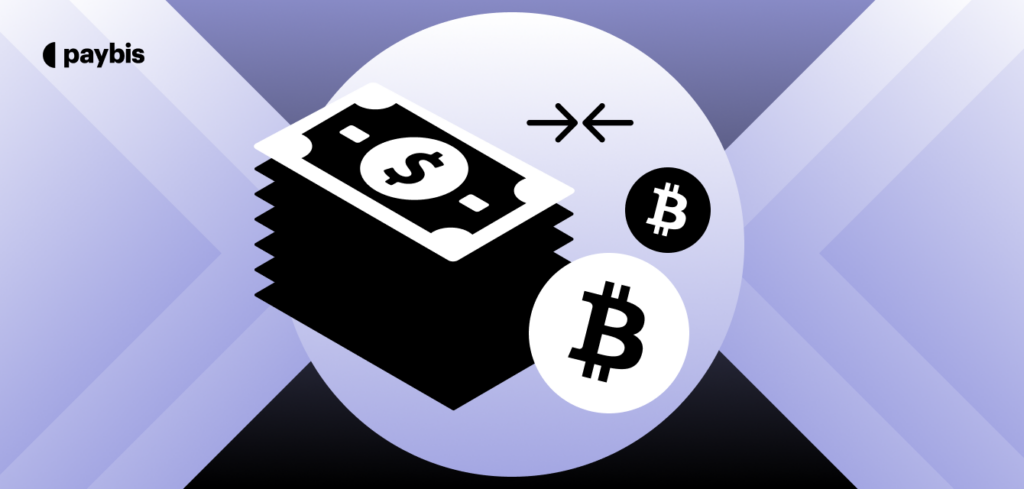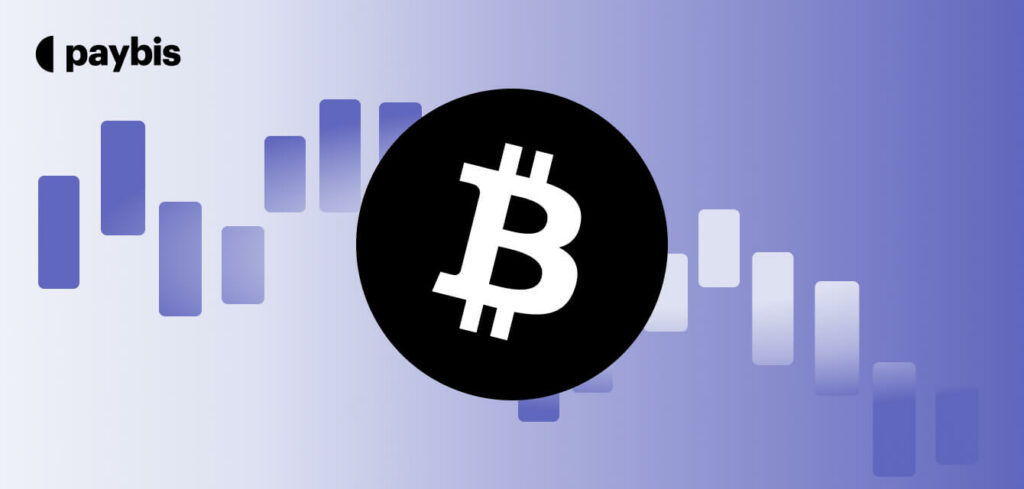Bitcoin
Bitcoin is a decentralized digital currency, meaning that it is not controlled by a central authority. Instead, it is fueled by the use of supercomputers, which belong to the network’s own users.
If you’re looking to understand what is Bitcoin, you’re in the right place. In this short post, we answer most of your questions and help you better understand the concept of cryptocurrency.
Throughout history, value has taken many forms and people have used different materials to represent it in the form of money. First, communities used to barter. Then, over time, evolution turned to precious metals, like gold.
The thing about commonly used mediums of exchange, like precious metals, is that everyone needs to believe and trust that they represent value. So our eventual transition to paper money had to abide by this rule as well.
Our current money is used to represent an amount of gold stored in the central bank. Paper bills were simply used as “receipt certificates” to redeem gold since the former was too impractical for daily transactions. In the last few years, however, this concept has changed.
Since 1971, our money is no longer linked to an amount of gold. Instead, governments are now liable for the value of paper money, and the public trusts in their value because they are being told to. This is how government-backed money (also known as FIAT) was created.
The current monetary model has two main drawbacks:
- It is controlled by a central authority, in this case, governments and financial institutions.
- These central authorities can issue unlimited amounts of money whenever they need to.
In turn, these issues lead to (1) our money being less valuable over time (due to inflation) and (2) central authorities gaining unlimited power and control. Do you see the problem? This is exactly why Bitcoin was created.
Table of contents
What is Bitcoin?
Bitcoin was created during the latest financial crisis by an anonymous persona known as Satoshi Nakamoto. Through a 9-page whitepaper, the founder revealed an alternative currency that gives power back to the people and does not lose its value over time.
Definition on Bitcoin
Bitcoin is a decentralized digital currency, meaning that it is not controlled by a central authority. Instead, it is fueled by the use of supercomputers, which belong to the network’s own users.
Each of these users has access to a digital ledger, known as the blockchain, that keeps track of all transactions, and allows people to exchange value directly with one another. Due to this, the network is transparent, and no one can duplicate or issue new coins by will.
If you wish to improve your knowledge, make sure you explore what is Blockchain.
Instead, the issuing of new coins happens through Bitcoin mining. By solving mathematical equations, the supercomputers mentioned above (a.k.a. nodes), confirm transactions on the blockchain. This results in the creation of new coins, which are rewarded to the operators of these computers (miners). There is a limited amount of 21.000.000 bitcoins, which are minted over time and will continue to do so until the year 2104.
While the concept of Bitcoin used to be an “underground” experiment, it has slowly crept into the mainstream, due to the continually increasing global economic instability.
Since bitcoins (the Bitcoin network’s coins) are inherently resistant to inflation and fully decentralized, many see the popular cryptocurrency as a great store of value and a worthwhile investment for the future. In just one decade, each coin has experienced a massive increase in value, going from a few cents to over $10.000.
Much like most investment markets in their infancy, Bitcoin goes through market cycles which makes it inherently volatile. Over time, however, it has proven to be one of the fastest appreciating assets in the world.

Opinions differ
As with most revolutionary concepts, there will always be advocates and naysayers. More specifically, there is a chasm between tech-savvy individuals who believe in Bitcoin and blockchain technology, and parties who are against it.
Successful tech entrepreneurs and forward-thinking individuals have long understood that Bitcoin’s fundamentals can act as the foundation for our future economy. While the market is still in its early days, many publicly listed companies have already started to allocate (parts of) their cash reserves into the popular cryptocurrency as a hedge against inflation. At the same time, thousands of people are building solutions to make the network more accessible to the public.
Among them is Facebook, who proposed the development of their own blockchain-based currency known as Libra. While the project has more commonalities with traditional money than it does with Bitcoin (unlimited amount, controlled by Facebook, etc.), it gives a good indication of the naysayers that are blocking the mainstream adoption of Bitcoin.
Governments, central banks, and politics are just a few of the parties that not only ignore the potential of Bitcoin but actively work to suppress it.
There are also those who believe that Bitcoin is doomed to fail due to its intangible nature and extreme price fluctuations. These are usually investors who are heavily invested in more traditional investment options and do not have a good understanding of technology. Some of them do not even bother to understand the definition of Bitcoin.
However, an interesting trend is starting to happen. In the past few years, financial institutions and certain governments have started to explore the potential applications of blockchain technology. For example, China is already testing a digital Yuan, which is based on blockchain technology.

As geopolitical issues continue to intensify in 2020 (due to Covid-19), more and more naysayers are slowly starting to drop their guard and look at Bitcoin objectively. This transition is expected to accelerate mainstream adoption and the potential growth of Bitcoin’s value.
Bitcoin’s role in the financial world
Satoshi Nakamoto had originally hoped for Bitcoin to become the first global currency. Has this goal been achieved, or are we moving towards a model where Bitcoin is simply a store of value? Let’s have a look at the current status of Bitcoin in the financial world.
Bitcoin and global payments
At the moment, there is still a lack of availability when it comes to using Bitcoin as a global payment method. However, over the past two years, we have experienced massive growth, thanks to the introduction of cryptocurrency debit cards, Bitcoin payment gateways, as well as mobile payment solutions.
Bitcoin and financial institutions
As mentioned above, banks are still against Bitcoin, and only a handful are starting to look at their potential from an objective viewpoint. We expect to see an increase of interest from financial institutions as more companies decide to invest their cash reserves into the popular cryptocurrency. This, however, is more linked to blockchain info and technology. To this day, Bitcoin is still seen as an “enemy” to the traditional financial concepts.
Bitcoin and trading
Due to its popularity as an investment and because of the recent bear market, Bitcoin has experienced a massive increase in trading volumes. Cryptocurrency exchanges are continuously releasing new products and services that allow users to use Bitcoin similarly to other, more traditional investment options. Among the different options, users can stake their coins, place them into high-yield savings accounts, trade using derivatives products, and explore more options on spot markets.
The good and the bad of Bitcoin in global finance
At the moment, we are cruising through a pivotal time. For most institutions, governments, and authorities, the question no longer is “what is Bitcoin” but more so “how can we prepare accordingly”.
Since the cryptocurrency keeps on becoming more popular and important, laws and legislations surrounding it are constantly changing. It is therefore important to create an overview of the pros and cons of Bitcoin when it comes to its applications in global finance:
The pros of Bitcoin
There are many advantages of Bitcoin that make it worth considering as both a currency and a store of value.
- Resistance to inflation – As aforementioned, due to the limited number of coins Bitcoin is resistant to inflation. This is further strengthened by the Bitcoin halvings, which occur once every 4 years. In short, when a halving occurs, the newly minted coins (miners’ rewards) automatically decrease by 50%, slowing down the release of new coins.
- Global availability – In contrast to traditional money, Bitcoin can be sent to anyone, anywhere, at any time. Users can transfer value overseas in just a few seconds. This makes it a great alternative for global commerce and online transactions.
- Efficient store of value – Bitcoin has many advantages over more traditional investment options. It is digital, intangible, easy to store and send, and fully in your control. This makes it better than, for example, gold, which is bulky, hard to transport, and usually stored in third-party facilities.
- A better form of transactional currency – Bitcoin has little to no fees and is transferred instantly between digital wallets. This makes it better than traditional currencies that are slowed down by government-imposed limitations. For example, a normal bank transfer can take up to 5 working days due to processing times.
- More democratic – Bitcoin is made by the people, for the people. It can be exchanged in a peer-to-peer fashion without the need for a middleman. It is also a great solution for nearly ⅓ of the world’s citizens, who currently remain unbanked due to their location or background.
- Trendy with younger generations – The millennial generation is more accustomed to investing compared to the generations before them. Due to the convenience, youthful design, and easy overview of the crypto markets, Bitcoin has become one of the most accessible investment options for younger demographics.
The cons (and risks) of Bitcoin
- Money laundering – While many point out that the US dollar is responsible for more money laundering than Bitcoin ever will, the latest makes the process a lot easier, since some exchanges do not request KYC verification. Even if this issue is resolved, users will still be able to use decentralized exchanges to make transactions without creating an account.
- Consumer protection risk – Once Bitcoin is sent, the transaction is final. No one can request a refund or open a dispute since the cryptocurrency is not controlled by any financial authority. If you sell Bitcoin or give it to someone else, it’s gone forever.
- Protocol risk – With the growth of supercomputers, protocol compromise risk grows too. If a design flaw is discovered in Bitcoin’s protocol, or some new form of hacking that can breach its underpinning cryptography, the trust in Bitcoin may be affected negatively.
- Tainted coins – Over the years, legal authorities have found ways to “mark” bitcoins that are linked with criminal activity in order to track them. If BTC is to become a legal tender in the future, governments could taint coins at will, making them worthless in the open market. This, in turn, would once again put the control back in the hands of third parties.
What does the future hold for Bitcoin as a financial tool?
While the majority of people still don’t know what is Bitcoin, others have already started to take a long-term outlook on its potential. These are the individuals who hope that Bitcoin will manage to fulfill Satoshi Nakamoto’s dream of becoming a global currency that gives power back to its users.
But how realistic is this scenario? In our opinion, the chances are very small. The only way for this shift to occur would be through the complete loss of trust towards the global reserve currency, the US dollar. If Bitcoin were to replace the US dollar, the whole hierarchy and power of the government over its people would change as well.
A more realistic scenario is that we see Bitcoin becoming the primary store of value within the next five years, replacing gold and thus exceeding its current market cap. When this occurs, we could see Bitcoin being used for international trade purposes, and countries storing it in their central banks as a reserve asset. As for what is Bitcoin worth? Make sure you check our Bitcoin price prediction; this guide will help you understand why our prediction is realistic and gives an explanation of the fundamentals that give power to BTC.
Wrapping up
You should now know what is Bitcoin and why so many people go on preaching about its importance. To avoid the misinformation and benefit from the opportunities that lie ahead of us, make sure you learn more about the popular cryptocurrency by doing your own research.
Bitcoin is not just another investment; it is not one more fad. In all of the history of Bitcoin, we have come to realize that it is a development that is expected to completely change the world as we know it. Therefore, it might just be a great opportunity to buy Bitcoin and hold onto it for the long-term. Over time, the Bitcoin price is expected to grow and, with it, the popularity of cryptocurrencies as a whole.
Disclaimer: Don’t invest unless you’re prepared to lose all the money you invest. This is a high‑risk investment and you should not expect to be protected if something goes wrong. Take 2 mins to learn more at: https://go.payb.is/FCA-Info


